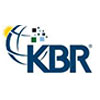Audit & Assurance
Expert audits to identify risks and provide valuable insights for growth.
Tax Agency Services
Stay ahead of tax regulations with our comprehensive tax solutions.
Best ICV Certification Services



Your Trusted Partner in Financial Success
At Adepts, we create tailored financial and strategic solutions that empower businesses to reach their goals and thrive in a fast-changing world. We collaborate closely with each client to understand their unique challenges and build strategies that drive measurable growth and success. Known for our quality, consistency, and innovative approach, Adepts is a trusted partner for companies looking to transform, succeed, and confidently lead.
Our Services
Trusted leader in financial auditing, offering thorough audit services to ensure accurate and reliable financial statements for our clients. Committed to integrity and excellence, we meticulously examine and report every financial detail, giving clients the confidence for informed decision-making. Our experienced team's dedication to precision makes us a top choice for precision-focused financial reporting
We are honoured to be recognised as pioneering FTA approved tax agents, serving a broad spectrum of clients for Corporate, Value Added and Excise Tax. Our elite services stand out by aiding our clients in optimising their financial management and tax filing processes. This focus not only saves time and money but also
Suppliers collaborating with Government, Semi-Government, or ICV-certified firms in the UAE receive the ICV Certificate, acknowledging their contribution to the nation's economy. This certificate reflects their support for national economic objectives and local value creation, boosting their competitiveness in procurement and market positioning
Our expert advisory services pave the way for your business's success. Specializing in deal, risk, and legal advisory, we offer bespoke solutions tailored to your unique needs. Our team of seasoned professionals is dedicated to guiding you through complex business landscapes. Let us empower your decisions with
Adepts Chartered Accountants excels in financial accounting and reporting services, ensuring precise management of financial records and clear reporting. Our commitment to financial integrity provides a comprehensive view of your finances, making us your trusted partner in streamlined accounting and reporting
Embark on your business journey with confidence with Adepts. Our team offers expert guidance in navigating the complexities of establishing a business, ensuring a smooth and compliant start. We specialise in providing tailored solutions that meet your specific business needs, helping to lay a solid foundation for your venture's success.
Our Services
Audit & Assurance
Financial Reporting
Taxation
Advisory
Business Setup
Financial Excellence Across Diverse Industries
Adepts helps businesses of all sizes in the UAE achieve their financial goals. We offer customized solutions for your specific needs, no matter your industry. Partner with us and let our experienced team help your business thrive. Contact us today!
Real Estate
We know the importance of the real estate market for the economy. We approach every property development & investment scenario differently.
Oil and Gas
The oil and gas industry is constantly evolving. Our Consultancy services include help with financial statements, risk and compliance, and taxation.
Healthcare
We appreciate healthcare institutions' distinctive financial management requirements & provide services to medical practices, hospitals, clinics, and the like.
Technology
Our services offer professional financial solutions applied to the tech industry, allowing our clients to succeed.
Insurance
The insurance industry requires specialized financial knowledge to navigate its complex regulations. We handle your financial compliance.
Banking
Banks & other financial institutions operate in challenging environments. We offer tailored financial services for your industry's unique challenges.
Construction
Control your construction costs with our expert financial services, including cost accounting and project management.
Retail
Let us help your retail business increase profitability through the best financial products engineered for your enterprise.
Education
Chemical
Travel
Real Estate
Oil and Gas
Healthcare
Technology
Insurance
Banking
Construction
Retail
Education
Chemical
Travel
Insights from Our Clients
Join a growing community of satisfied customers. Discover their stories and experiences with Adepts
AL MARAI EMIRATES COMPANY LLC
Partnering with Adepts for our ICV Certification was a game changer since 2020. Their expertise and tailored approach streamlined our process, aligning perfectly with our commitment to excellence and efficiency. Adepts' contribution has been invaluable in enhancing our operations and supporting our growth in the Middle East
Kellogg Brown & Root International INC
Adepts has been instrumental since 2019 in propelling our business to new heights. Their unparalleled expertise in ICV certification and advisory services has not only streamlined our operations but also significantly contributed to our growth and success. With Adepts, our journey through the ICV program was seamless and effective, ensuring we stay at the forefront of industry standards and excel in our projects. Their commitment to excellence and detailed understanding of the ICV framework makes them an invaluable partner for any forward-thinking business.
LYVE GLOBAL
Working with Adepts on our due diligence processes has been a transformative experience for Lyve Global. Their meticulous approach and in-depth analysis have provided us with critical insights, ensuring informed and strategic decision-making. Adepts' expertise and commitment to detail have been invaluable in navigating complex transactions, making them an essential partner in our business endeavors
Insights from Our Clients
Sr. Accounting Manager
Managing Partner
Project Director
Nadir Museitif
Chief Investment Officer
Meet Our Team
Founder & managing partner
Partner AUDIT AND ASSURANCE
Partner ADVISORY SERVICES
SENIOR Manager – BUSINESS DEVELOPMENT
